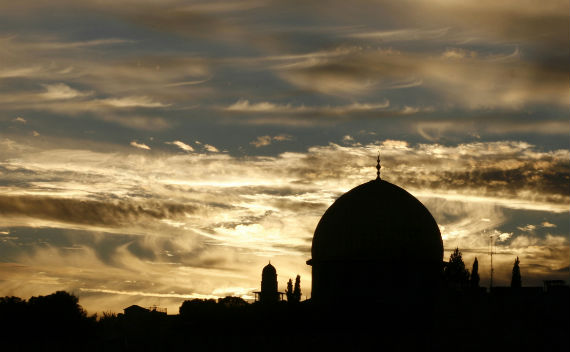Snapshot from Jerusalem
More on:

Jerusalem-- After a brief visit to Israel and the Palestinian Territories, it is clear that Israelis and Palestinians are gazing past one another, focused largely on their own internal developments and on broader regional issues. Both share a sense that the plate tectonics of the region are shifting, and both are trying to figure out how best to navigate through this changing environment.
The euphoria I sensed among Palestinians the last time I visited several months ago, brought about by Mahmoud Abbas’s efforts to attain statehood recognition in New York, was burst by the Israel-Hamas deal in which Corporal Shalit was exchanged for more than one thousand Palestinian prisoners. Hamas delivered; Abbas hasn’t.
While settler violence, both against Palestinians as well as against the Israeli army, has recently increased dramatically in the West Bank, the sense that an uprising could explode at any time has dissipated. Though, one can never be sure. A Palestinian friend called it “the calm between the storms.”
Meanwhile, internal Palestinian political machinations have intensified. Abbas’s repeated call for elections in various Palestinian political bodies, combined with his pledge not to run himself, has set off intense backroom Palestinian politicking. Abbas and Hamas’ Khaled Meshal failed to make significant headway in bridging their differences in their meeting in Cairo last month. Still, the pace of Palestinian reconciliation efforts has been stepped up, and no one would be surprised if a breakthrough were reached tomorrow. Yet nobody is predicting it. Fatah-Hamas meetings are slated to be held this month, as are intensive meetings that will explore the prospects of bringing Hamas inside the PLO, the supreme Palestinian political organization representing the interests of Palestinians worldwide. The central question yet remains: on whose terms would they agree?
Meanwhile, Israeli officials are watching regional developments with alarm. They see the potential for Assad’s downfall to roll back Iranian influence in the Arab world. They also fear that Syria’s instability could spill over into Jordan or Lebanon or indeed directly over their shared border.
And Israeli officials continue to fret over Egypt, seeing developments there trending against Israeli interests. Yes, the Israelis have been able to return their ambassador to Cairo, and nobody is threatening to tear up their peace treaty tomorrow. Nonetheless, Israeli officials worry about the political successes so far of the Muslim Brotherhood and of the more extremist Salafist parties, and they see developments in Egypt constricting Israeli freedom to maneuver concerning Gaza.
While some in Israel are arguing that the regional unrest should lead Prime Minister Netanyahu to redouble his efforts to reach out to Mahmoud Abbas, the snap Likud primary that Netanyahu recently called for late January will push him further away from any peacemaking efforts in the next few months. He wins no points from the hard right in Likud by making gestures toward the Palestinians right now, even if larger national interests might argue for drawing the Palestinians back to the table lest broader regional issues render such talks impossible.
Yet above all, Israeli officials are most worried and most focused on Iran. They are not convinced when President Obama and other senior American officials insist on every occasion that all options remain on the table and that an Iranian nuclear weapon is unacceptable. Instead, the Israelis seem to suspect that the United States may be prepared to live with an Iranian bomb. U.S. and Israeli officials have intensified their crisscrossing of the Atlantic in their efforts to overcome what appears to be a profound absence of mutual trust between the two sides. So far, the numerous exchanges have not succeeded in forging a strategic agreement on how to handle the Iranian threat. Let’s hope Israel and the United States reach some understanding soon, lest one side acts having miscalculated the intentions of the other.
More on:
 Online Store
Online Store
